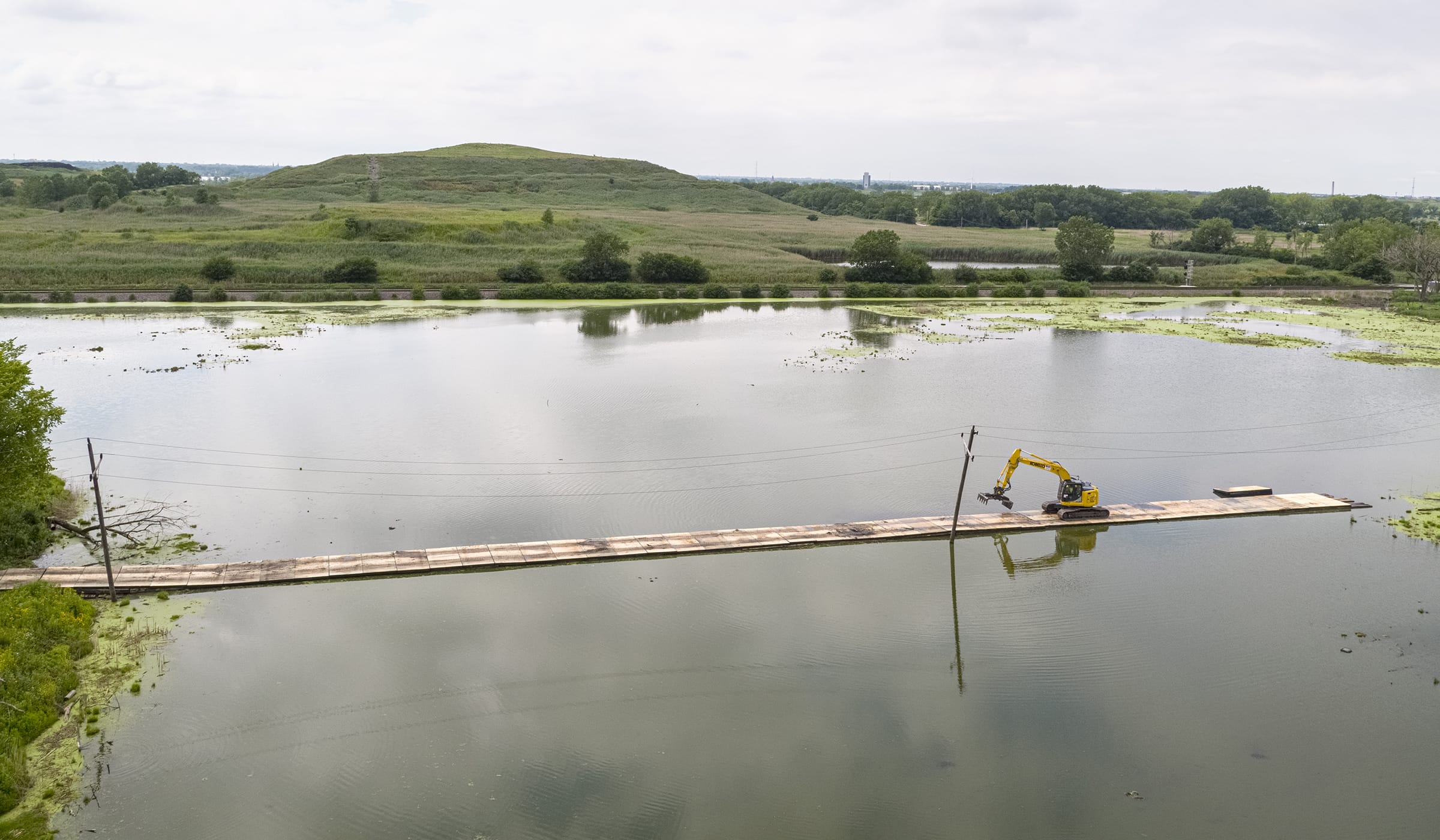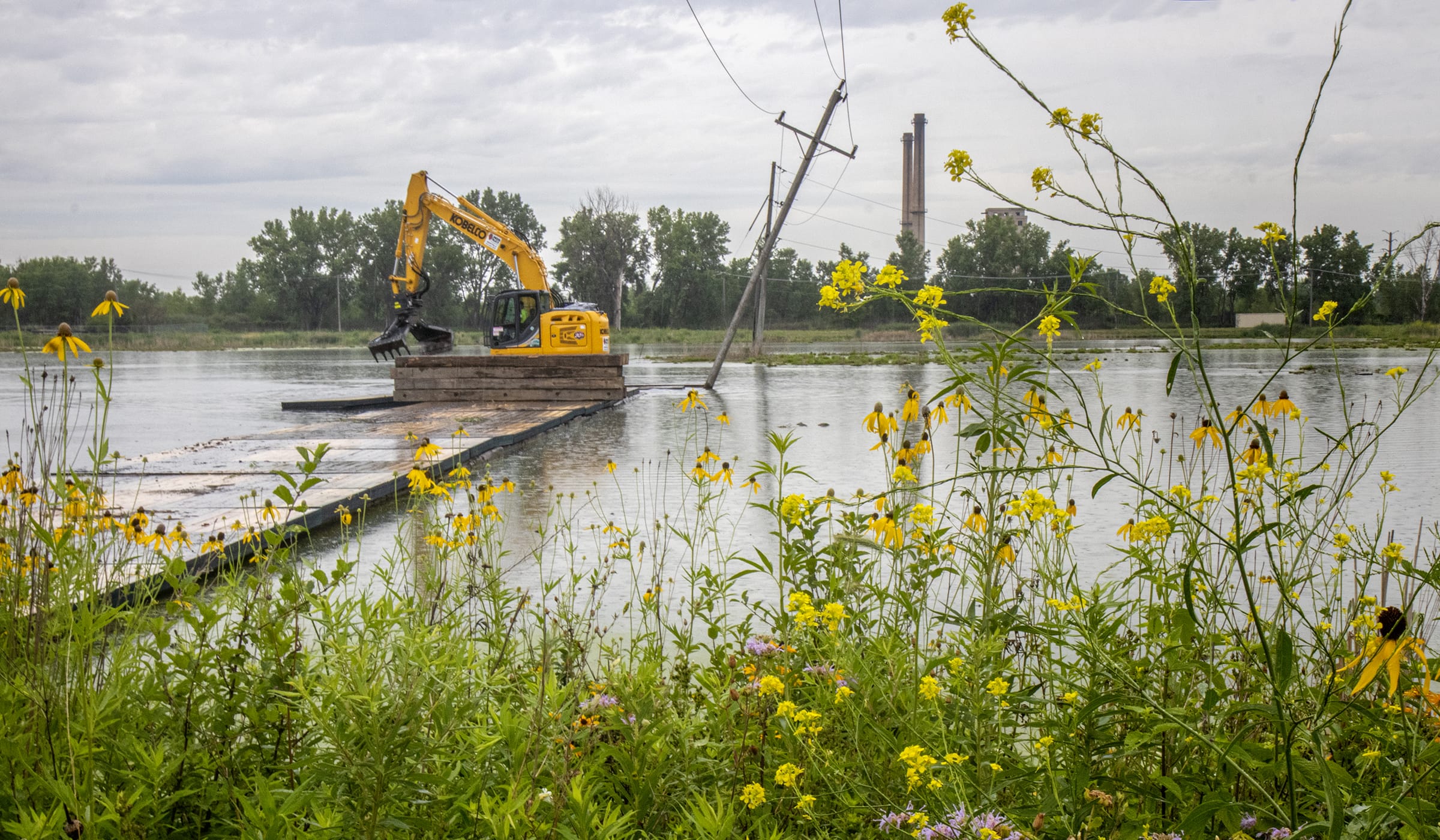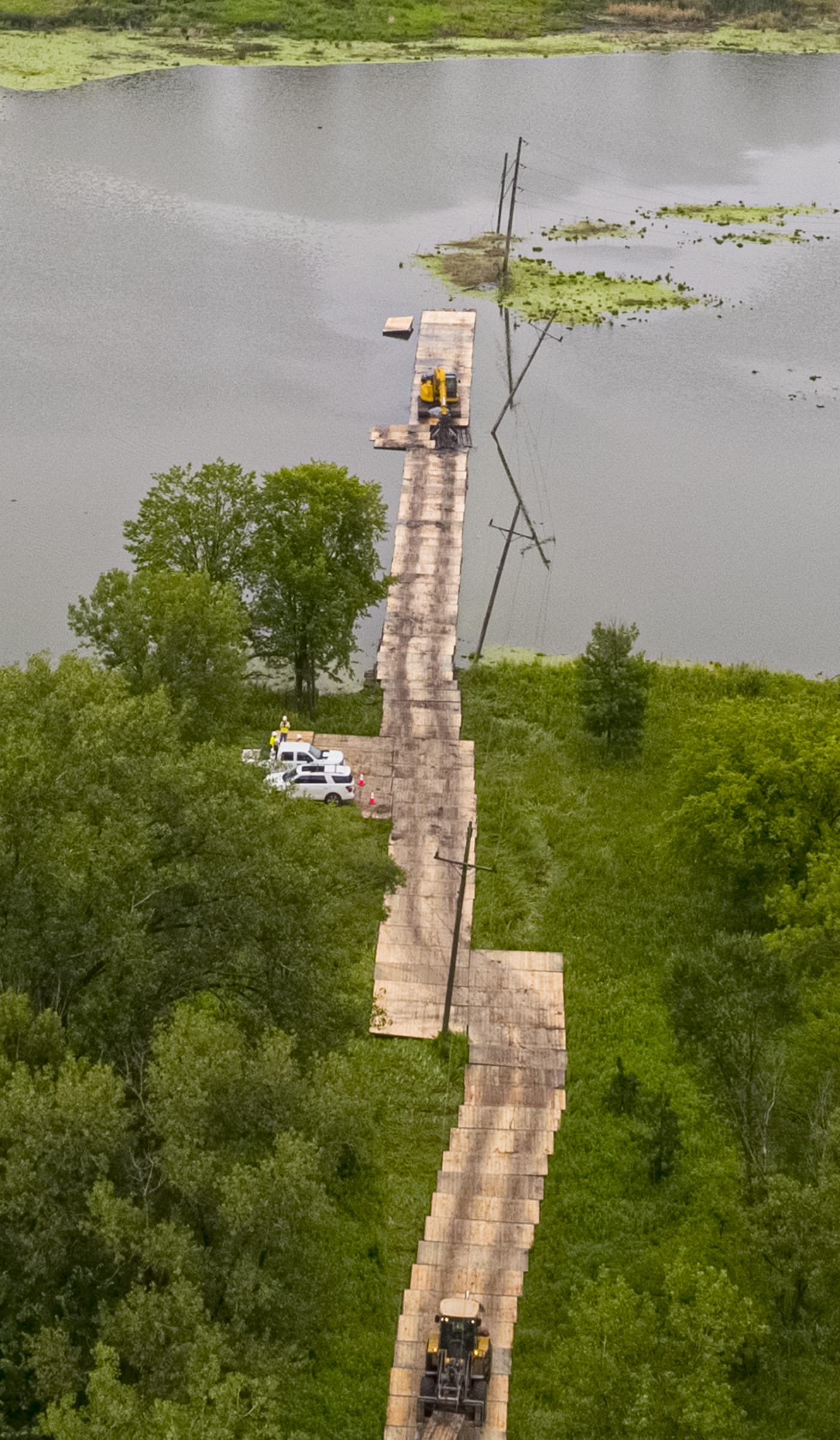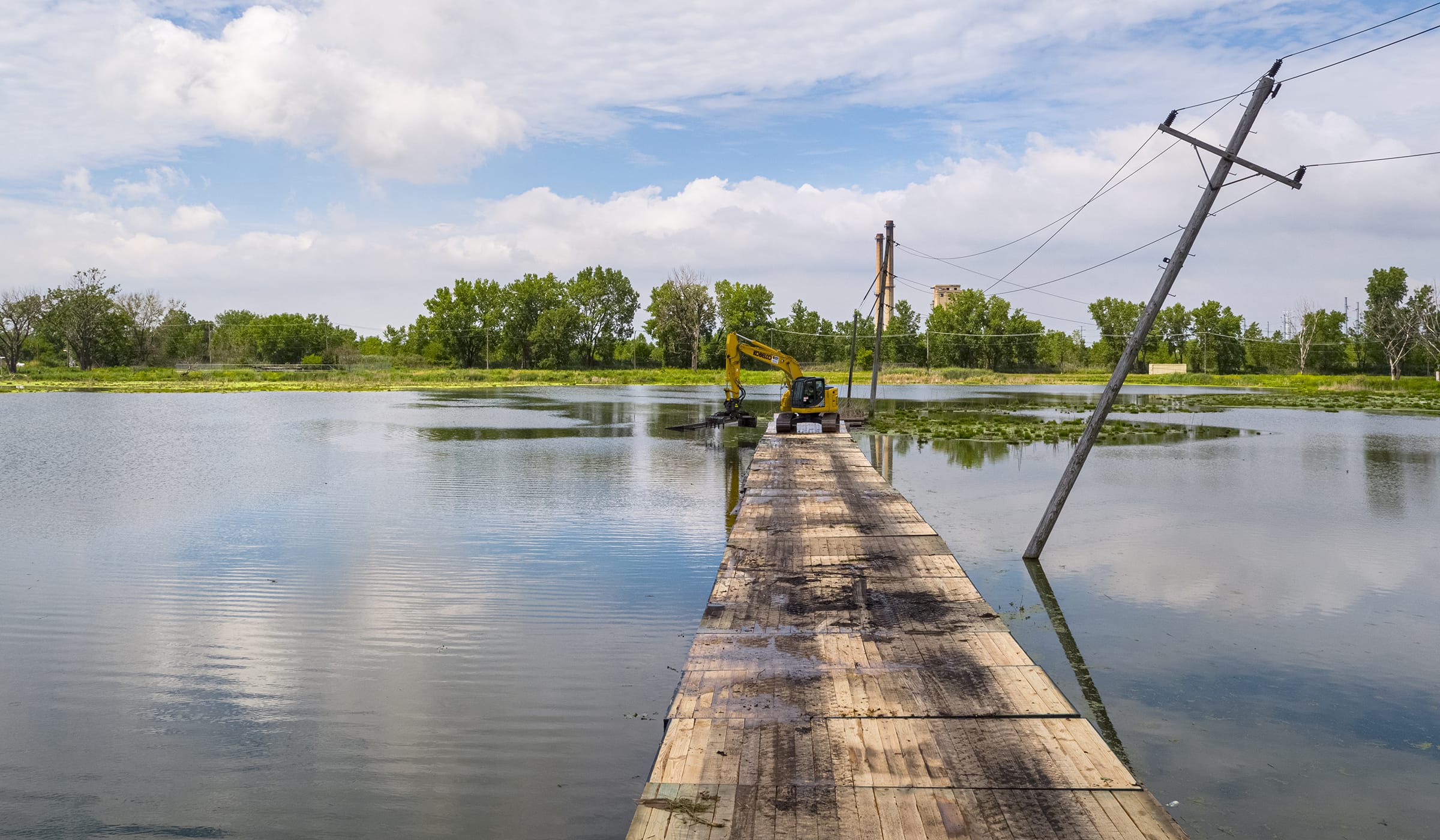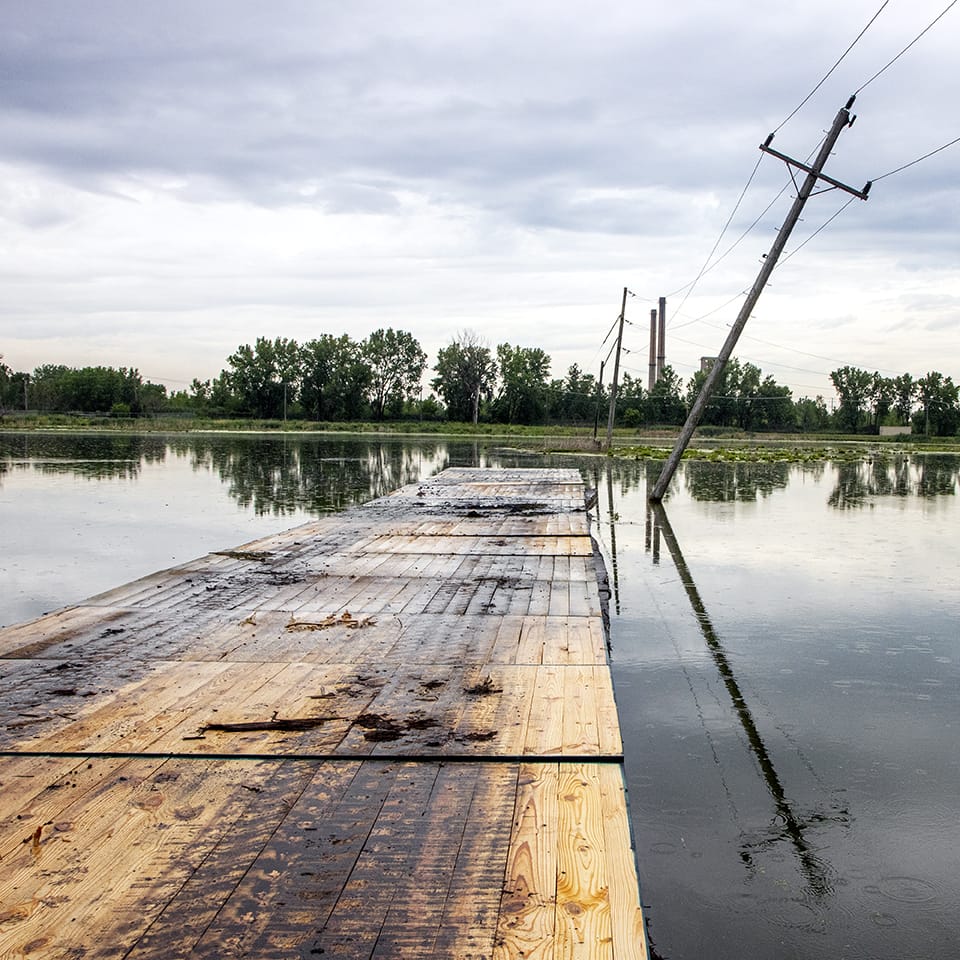Duration: 5 Months
ComEd serves 4 million electricity customers throughout Northern Illinois, including the entire Chicago metropolitan area. ComEd is part of Exelon, one of the largest utilities in the United States.
Situation
To remove decommissioned distribution poles that ran through native marsh and wet prairie habitat in southern Chicago, ComEd needed temporary access that minimized damage to this environmentally sensitive area. Indian Ridge Marsh Park is a 154-acre nature preserve that provides essential habitat for local wetland birds, including Great Egrets, Double-crested Cormorants, Green Herons, Pied-billed Grebes, Black-crowned Night Herons, and Yellow-headed Blackbirds.
Challenge
A distribution line that ran through the heart of the Indian Ridge Marsh Park was taken out of service, and to help restore the beauty of the protected area, ComEd chose to remove the existing poles and lines. Several poles were in up to five feet of water and mud in the marsh, too deep for any standard tracked vehicles.
Because of the difficulty presented, ComEd’s construction team involved Sterling early in the process to design an efficient and safe site access plan that minimized the impact to the marsh. Sterling project managers performed a walk down of the site that included checking the water depth and soil conditions of the marsh along the proposed route.
Sterling’s construction team and environmental manager proposed building a temporary access road through the marsh with 20’ and 40’ timber mat runners and risers combined with TerraLam CLT mats. This construction method proposed by Sterling was the optimal solution to achieve ComEd’s environmental and safety goals.
Results
Sterling’s Environmental Construction Services team was mobilized to install this project. About 2,000 linear feet of TerraLam 508 CLT mats created access roads and work pads in the upland sections of the native prairie. A mixture of TerraLam 508 CLT mats and timber mats were used to create more than 650 linear feet of access road to the decommissioned poles through the marsh.
Additional safety precautions were put into place for the employees, such as using life jackets when on the water and leaving clear escape routes from machinery. Even with inclement weather, Sterling completed the installation in under two days without any safety or environmental incidents.
ComEd workers felt secure and stable as they performed work on the temporary access road and the environmental team was impressed how minimal the footprint was once Sterling removed the mats from the marsh. As part of the restoration process, Sterling spread native prairie seed and a native flower mix to over 85,000 square feet of the park and repaired over 500 linear feet of park fencing
Because Sterling was involved early in the project to help plan and execute the route and type of access needed, ComEd was able to focus on the critical tasks that allowed them to safely completed the project on time, under budget, and with minimal environmental impact.
